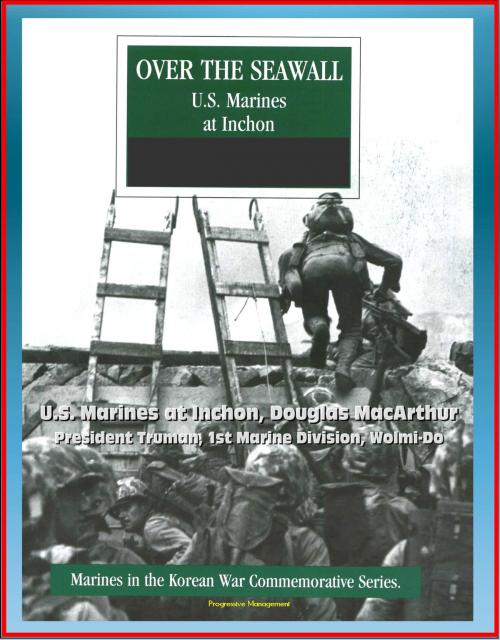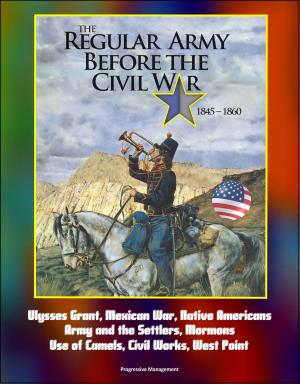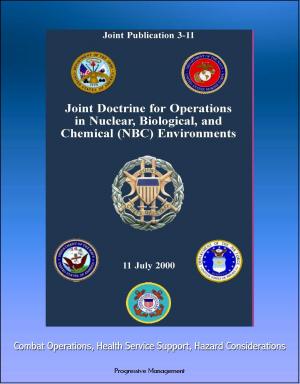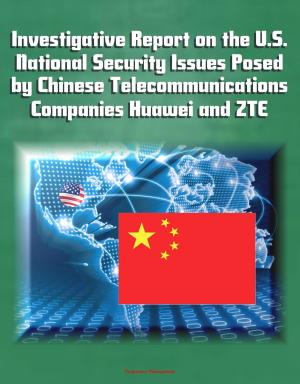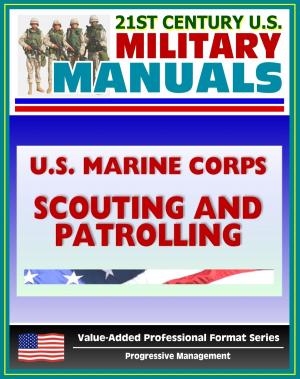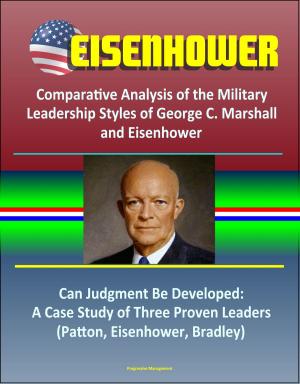Marines in the Korean War Commemorative Series: Over the Seawall - U.S. Marines at Inchon, Douglas MacArthur, President Truman, 1st Marine Division, Wolmi-Do
Nonfiction, History, Asian, Korean War, Military| Author: | Progressive Management | ISBN: | 9781301841066 |
| Publisher: | Progressive Management | Publication: | January 12, 2013 |
| Imprint: | Smashwords Edition | Language: | English |
| Author: | Progressive Management |
| ISBN: | 9781301841066 |
| Publisher: | Progressive Management |
| Publication: | January 12, 2013 |
| Imprint: | Smashwords Edition |
| Language: | English |
This official U.S. Marine Corps history provides unique information about an important aspect of the Korean War. Some of the subjects included in this history: Major General Field Harris, Colonel Lewis B. Chesty Puller, Major General Oliver P. Smith, 1st Marine Division, General Douglas MacArthur, President Truman, USS Mount McKinley, Wolmi-Do, the drive to Kimpo, amphibious assault, DUKWs.
Here is an excerpt:
Just three weeks away and there was still no approval from Washington for the Marines to land at Inchon on 15 September 1950. General of the Army Douglas MacArthur, determined to beat down the opposition to the landing, called a conference for late in the day, 23 August, at his headquarters in the Dai Ichi building in Tokyo. As Commander in Chief, Far East (CinCFE), MacArthur considered himself empowered to conduct military operations more-or-less as he saw fit. But for an operation of the magnitude of Inchon and the resources it would require he needed approval from the highest level.
The Joint Chiefs of Staff (JCS), doubtful of the landing's chances of success, had sent out the Army Chief of Staff, General J. Lawton Collins, and the Chief of Naval Operations, Admiral Forrest P. Sherman, to review the situation directly with MacArthur. Now he would have to overcome their skeptical resistance. Collins was the JCS executive agent for the Far East Command and nominally higher in the chain-of-command than MacArthur—but only nominally. In World War I MacArthur was already a brigadier general when Collins was barely a captain. Now MacArthur had five stars and Collins four.
On this afternoon, First Lieutenant Alexander M. Haig's task was to lay out the pads of paper, pencils, and water glasses on the table of the sixth floor conference room. This done, he took his post seated in a straight-backed chair just outside the door. Haig, then the junior aide-de-camp to MacArthur's chief of staff, was destined to become, many years later, the Secretary of State.
The Marine Corps would have no voice at the meeting. The Corps had neither membership nor representation on the JCS. Admiral Sherman, not a strong champion of Marine Corps interests, was the service chief most directly concerned with the amphibious phase of the still tentative operation.
This official U.S. Marine Corps history provides unique information about an important aspect of the Korean War. Some of the subjects included in this history: Major General Field Harris, Colonel Lewis B. Chesty Puller, Major General Oliver P. Smith, 1st Marine Division, General Douglas MacArthur, President Truman, USS Mount McKinley, Wolmi-Do, the drive to Kimpo, amphibious assault, DUKWs.
Here is an excerpt:
Just three weeks away and there was still no approval from Washington for the Marines to land at Inchon on 15 September 1950. General of the Army Douglas MacArthur, determined to beat down the opposition to the landing, called a conference for late in the day, 23 August, at his headquarters in the Dai Ichi building in Tokyo. As Commander in Chief, Far East (CinCFE), MacArthur considered himself empowered to conduct military operations more-or-less as he saw fit. But for an operation of the magnitude of Inchon and the resources it would require he needed approval from the highest level.
The Joint Chiefs of Staff (JCS), doubtful of the landing's chances of success, had sent out the Army Chief of Staff, General J. Lawton Collins, and the Chief of Naval Operations, Admiral Forrest P. Sherman, to review the situation directly with MacArthur. Now he would have to overcome their skeptical resistance. Collins was the JCS executive agent for the Far East Command and nominally higher in the chain-of-command than MacArthur—but only nominally. In World War I MacArthur was already a brigadier general when Collins was barely a captain. Now MacArthur had five stars and Collins four.
On this afternoon, First Lieutenant Alexander M. Haig's task was to lay out the pads of paper, pencils, and water glasses on the table of the sixth floor conference room. This done, he took his post seated in a straight-backed chair just outside the door. Haig, then the junior aide-de-camp to MacArthur's chief of staff, was destined to become, many years later, the Secretary of State.
The Marine Corps would have no voice at the meeting. The Corps had neither membership nor representation on the JCS. Admiral Sherman, not a strong champion of Marine Corps interests, was the service chief most directly concerned with the amphibious phase of the still tentative operation.
